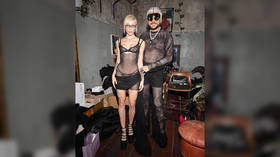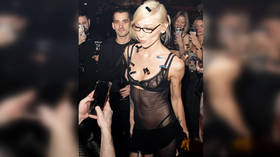‘Almost naked’ Moscow party promoted LGBT – MP

Photo and video content from a party with an “almost naked” dress code in Moscow, which elicited the outrage of the Russian authorities and civil society, was found to have promoted LGBT, the chairman of the State Duma Information Policy Committee, Alexander Khinshtein, said on Saturday.
The party, hosted by popular Russian blogger and TV personality Anastasiya Ivleeva, took place Wednesday night at an elite Moscow club, with tickets costing up to one million rubles ($10,767). The event was attended by a range of Russian celebrities, including Eurovision 2008 winner Dima Bilan and former presidential candidate Ksenia Sobchak.
Activists have called on the Prosecutor General’s Office, the Investigative Committee, and the Interior Ministry to look into the event, pointing out that it took place against the backdrop of Russia “standing up for traditional values.”
Russia’s media watchdog Roskomnadzor “sees signs of LGBT propaganda in a number of photo and video materials” from the event posted online, Khinshtein said, adding that the agency has already begun “deleting and blocking this abomination.” He also expressed expectations that the police “will not stand aside” and that the organizers of the party will face administrative charges of LGBT propaganda.
One of the attendees, 25-year-old rapper Nikolai Vasilyev, known as Vacio, followed the dress code literally and showed up with just a Balenciaga sock on his penis, reportedly invoking a look sported by Red Hot Chili Peppers frontman Anthony Kiedis in the 1990s. On Friday, Vacio was jailed for 15 days for violating the public order and fined 200,000 rubles (just over $2,000) on a charge of LGBT propaganda, according to the press service of a Moscow court.
The rapper told officers that he chose the look to “surprise the public,” adding that he is not an LGBT supporter.
In December 2022, Russian President Vladimir Putin signed a law banning LGBT propaganda. Under the new legislation, such activities could result in fines of up to 400,000 rubles (more than $4,300) for individuals, or up to 5 million rubles ($54,000) if the violation was committed by a legal entity.
In November 2023, the Russian Supreme Court recognized the “international LGBT movement” as an extremist organization and banned its activities in the country.













